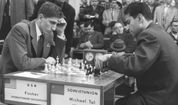Arthur Herman. “1917. Lenin, Wilson and the Birth of the New World Disorder”. Book review
At the first glance, it is possible to anticipate that the angle of the book is vague – nobody has examined those similarities between the two great historical leaders in such detail.
Neither Western school of international relations nor the Soviet one paid attention to commonalities, truly changing the world history in 1917-1919. Both intellectual schools considered that all “victory laurels” must be given to one particular person in the Western Idealism School and one person in Marxism-Leninism – namely, to Woodrow Wilson and to Vladimir Lenin respectively.
Besides the ideological foundations of two global paradigms (Liberalism and Communism), Arthur Herman pays attention to the fact that they had ideological and intellectual similarities.
Therefore, this is an excellent book based on the attempt to see the world history through the angle of parallel biographies of Lenin and Wilson.
They both were secular millenarian politicians, both determined to rule their world revolutions.
The book starts with the comparison of life paths of Lenin and Wilson at the beginning of the Great War (World War I). Wilson, as the President of the U.S., staunchly supported the U.S. policy of non-engagement to the war. His political motto was that America is not going to participate in this barbarian war. Wilson’s paradigm was based upon the presumption that America would interfere in the war only as a “mediator”, an impartial party.
Meanwhile, Lenin lives in Zurich and at the same time is living his life in poverty and not-recognition. However, he strives for global war and waits for the “good” news about protests in Russia, as a good sign for his future of the world revolution.
This book is about two men, who staged two historical events in the same historical year, in 1917.
The author shows that there are many different details between them, but their historical fate, during this year especially, is strikingly similar.
Herman writes that humanity still lives in the shadow of the events that these two people initiated. They both brought own countries to something new. Wilson brought the United States to the world history first, when he decided to join to the First World War. Secondly, when he appeared with his global and American agenda after the war. Without Lenin, the author claims, the creation of the Eurasian superpower – the Soviet Union – would be impossible.
Ultimately, Lenin’s and Wilson’s creations would collide head-on in the Cold War. For them, the most crucial year was 1917. Hence, the author dedicated his book to the examination of what those both men created this particular year. They re-shaped the world and European geopolitical landscape and declared the war against the old moribund global order.
Lenin and Wilson had intellectual background and in their nature were, arguably, idealistic. For both, Georg W.F. Hegel was an intellectual teacher. They both considered that they can bring universal redemption to humanity. The “peaceful” rhetoric and global universalism was very close to Lenin and Wilson.
The author points out that they both had own rivalries which presented completely different geopolitical and philosophical concepts.
The Republican leader of the U.S. Senate Henry Cabot Lodge and the Prime Minister of Russian Provisional Government Alexander Kerensky were more pragmatic and realistic than Lenin and Wilson. If these two rivals of our book heroes won, the history would have a completely different course than we know it now, the author of the book writes.
Herman cites that in Lenin’s “Who, whom?” there is quintessence of his cynical universalism.
In Lenin’s world view, everything that occurred in the history is the result of one class (or race or gender) taking advantage of another. The main conclusion of Herman is that Wilson made a huge mistake and participated in the conference. Moreover, after the conference, there was a battle inside the United States for the ratification of the League of Nations’ Agreement. Herman mentions, that it was not the victory of Henry Cabot Lodge, it was a strategic error of Wilson, who was not ready to compromise on that. Lodge, according to Herman, was ready to negotiate about terms, but Wilson vehemently opposed, he was too stubborn and physically ill.
At the end of the book, the author is asking himself what was the “Good Thing” for history of the world and what the “Bad Thing” was. He answers that Woodrow Wilson and the emergence of the United States as the global power was and still is a good thing, but regarding Lenin the author concludes that the emerging of the Soviet Union is “a very bad thing.” One is the defender of human freedom, another is the enslaver of peoples and annihilator of freedom.
Finally, he gives own story of life regarding the entire book. His father was a philosopher that personally met Kerensky who promised to his father that Communism would fall eventually. Herman mentions that Wilson’s world defeated Lenin’s world. The author says that the lesson from his book is that there are different types of dreamers in the world history and usually many of them are bringing calamity and disaster to the world.
But not always, he writes, pointing to the legacy of Wilson who survived and eliminated freedom and order to the humanity.
Autor
Ridvan Bari Urcosta
Senior Analyst at Strategy&Future






Trwa ładowanie...